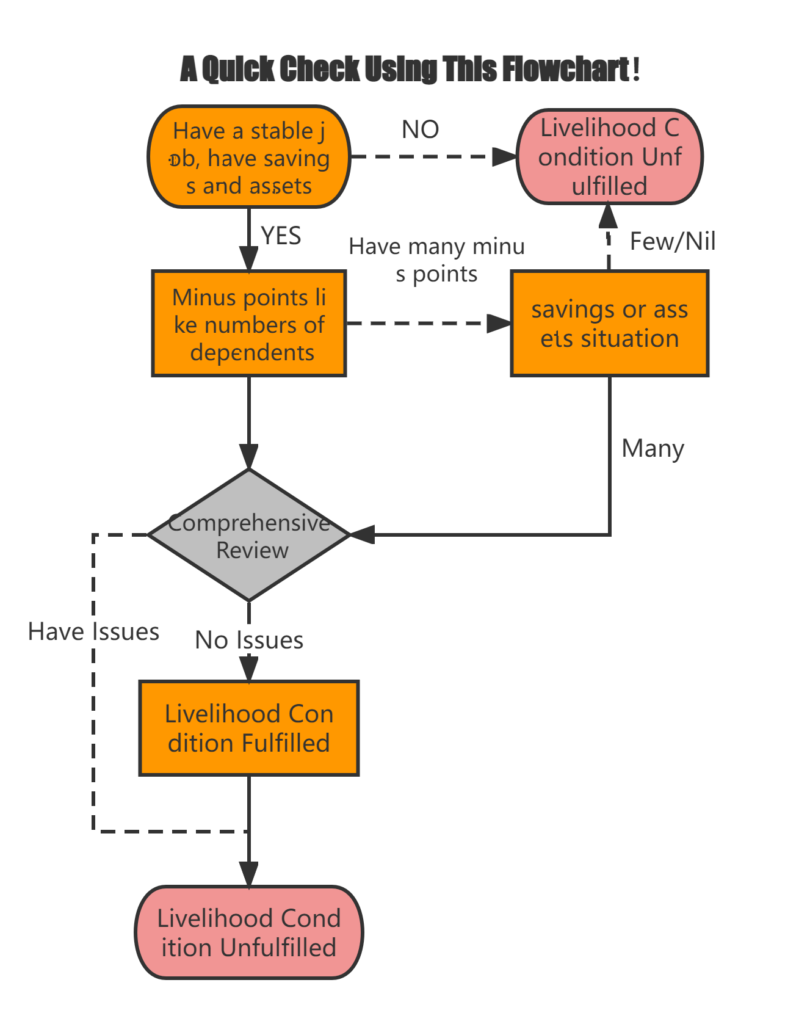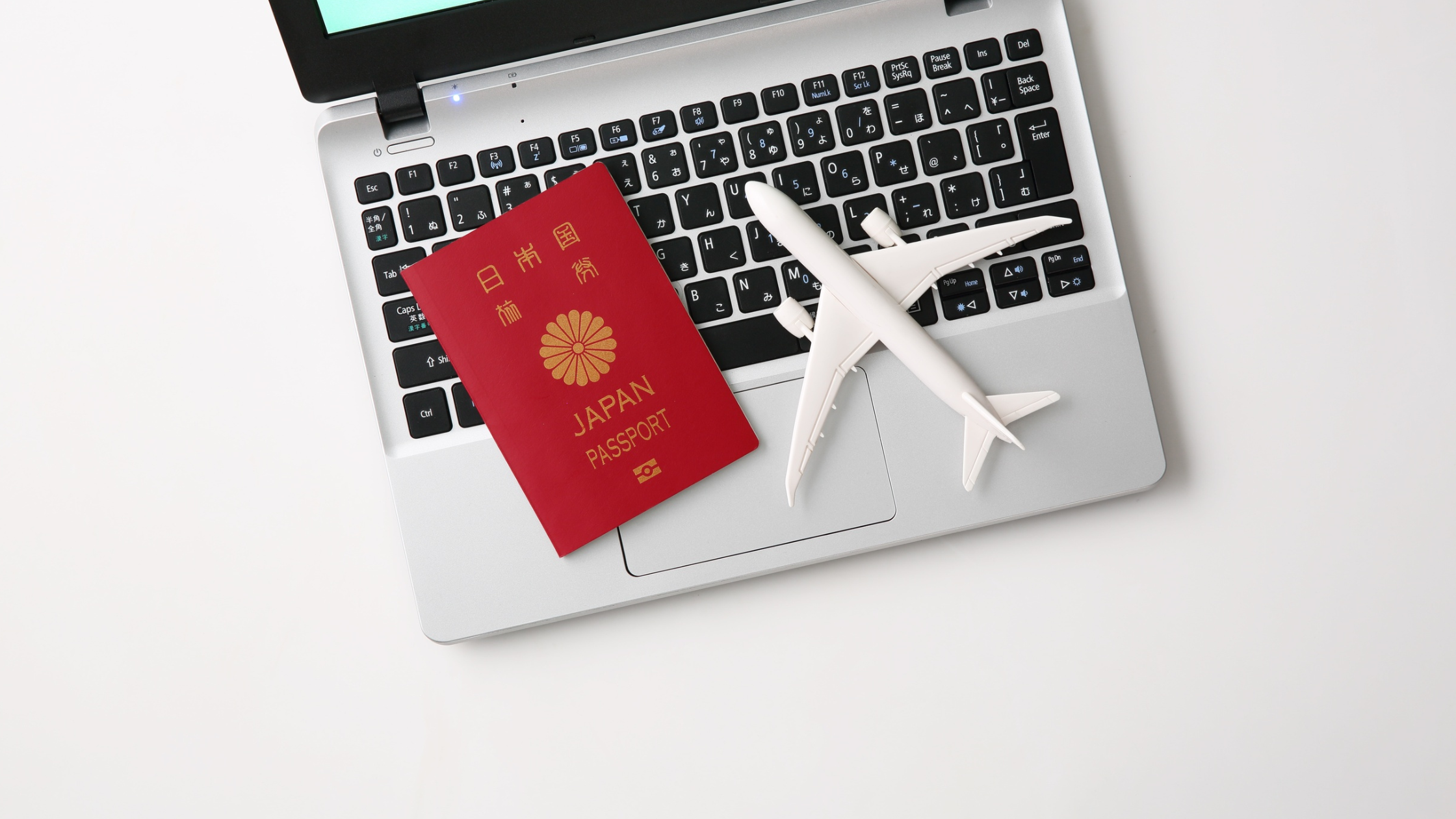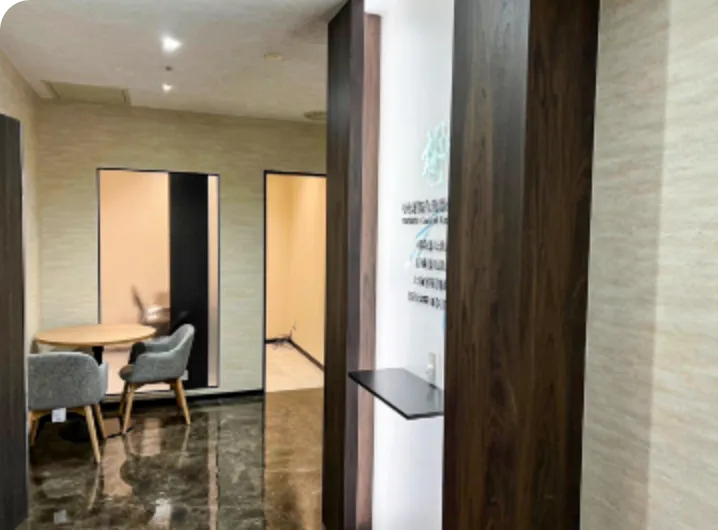Naturalization Application
Acquisition of Japanese Nationality for Indian [Naturalization]
- 2024.05.15

Naturalization is the process by which a foreigner acquires Japanese citizenship in Japan. By naturalization, a foreigner can change his/her Japanese name, obtain a family register, and acquire the same rights as a Japanese national, such as social security rights and the right to vote. To become a naturalized citizen, you must submit the necessary documents to the Legal Affairs Bureau or District Legal Affairs Bureau that has jurisdiction over your address, and you must obtain permission from the Minister of Justice. In recent years, India’s population has continued to grow, surpassing China as the most populous country in the world. The population is growing at a rate of approximately 10 million people per year, driven by declining infant mortality rates, economic growth, and improved food supplies. As the population grows, the number of Indians living in Japan is also expected to increase. In this issue, we will provide a thorough explanation of the naturalization process and precautions for Indian nationals who wish to naturalize and become Japanese citizens. “What documents are required for Indian naturalization?” “What are the precautions for Indian naturalization?” “Is it possible for an Indian family to apply for naturalization for only one member of the couple?”
Points to keep in mind when applying for naturalization in general
| (Common requirements) First, check if you can be naturalized! | ||
| Domicile Requirement | ・Come to Japan for 5 years and work for more than 3 years ・If you are a Indian who is married to a Japanese, you must have been married for at least 3 years and in Japan for at least 1 year. [Points to note] ・If you have changed jobs and have a gap period (no job), the gap period is not included in the “3 years of work”. ・If you travel abroad for more than 150 days per year or leave Japan for more than 90 days at a time, there may be a problem. ・If you marry a Japanese national, the authenticity of the marriage will be strictly observed. |
 |
| Livelihood Requirements | ・Provide a stable job and have a certain amount of savings. ・In the case of a business owner, both personal income and company management must be stable. ※Naturalization tends to become more difficult every year, and as a general guideline, a household of one person should have at least 3 million yen/year. [Points to note] ・If you have more than one dependent for the purpose of tax reduction without actual status, it will be a problem. ・If you have some debts or debts such as loans, etc., but they do not affect your life, it is OK. |
 |
| Behavior Condition | ・Indian nationals who have a driver’s license will be screened for past traffic violations. ・Violations of laws in Nepal as well as in Japan are also relevant. ・Failure to pay pension, health insurance, and taxes can be a problem. [Points to note] ・If the applicant has relatives in Japan and they have violations of laws or obligations, it is likely to have a negative impact on the applicant. (Even if there is no violation, for example, if the relative is a burden to Japanese society, such as welfare, it will be viewed negatively.) ・The electronic scooters that have become popular in recent years can now be ridden more casually due to legal revisions, but they also tend to be subject to stronger enforcement. Please be careful not to violate traffic laws when using them! [the electric scooter blog] |
|
| Japanese Proficiency | ・You must be able to read and write at a third-grade elementary school level ・You will be asked about your reasons for applying for naturalization, your background, and your plans after naturalization, etc. “I can barely say the language” may cause problems. |
|
Required documents for naturalization application for Indian nationals
*The documents to be submitted and the procedure may differ depending on the customer’s situation and the Legal Affairs Bureau.
(1) Application Form for Naturalization (with photo)
*Facial photos (5 cm (H) x 5 cm (W)) to be affixed to the application form X 2
*The photo must be taken within 6 months prior to the application.
*If the applicant is under 15 years of age, the photo must be taken with his/her legal representative (parents, etc.).
(2) A Document Describing the Relative’s Profile
*Escribe accurately based on a copy of the family register or other documents.
Include information such as their intention to support or oppose naturalization and, in the case of relatives residing in Japan, their telephone number and contact information.
If there are relatives who cannot be contacted or who oppose naturalization, please consult a specialist or the Legal Affairs Bureau.
(3) Resume
*Some resumes require substantiating documents.
e.g.) If you are a student: Certificate of enrollment/last diploma or a copy of diploma.
e.g.) If your skills are listed: Certificate or other written materials attesting to your qualifications
e.g.) If you have a driver’s license: a copy of the front and back of the driver’s license
(4) Letter of Motivation for Naturalization
This must be handwritten.
Your Japanese language ability will also be checked here, so be careful not to use incorrect Japanese.
(5) Written oath
(6) Documents Certifying Nationality and Status
Birth Certificate
Marriage Certificate
Divorce Certificate
Death Certificate
Certificate of Kinship
Written Statements from Parents
*For details, please refer to 3-1. About Required Documents Certifying Nationality and Status for Indian
(7) Certificate of Nationality
*For details, please refer to 3-2. Proof of Indian Nationality.
(8) Entry and Departure Record
*This document must show the history of entry and departure from Japan from the time of landing in Japan to the present.
Enter the immigration history accurately based on passport information, etc.
The country of destination should also be listed.
If the number of days you have been out of the country is too long, it will affect the screening process.
(including records of expired passports)
(9) Copy of Certificate of Residence, etc.
*All applicants, their cohabitants and spouses, etc. must be listed.
(10) A document Stating A Summary of Living Arrangements
*All applicable items must be submitted.
- Proof of employment and salary
- Certificate of present value of savings and a copy of savings book
- Copy of lease contract
- Certificate of land/building registration
- If there is a spouse or other relative who shares the same livelihood, a statement of their spending relationship.
- If the applicant is financially supported by relatives from different households, the document should show the spending relationship.
*For example, if you receive ¥100,000/month from your parents in Nepal, a record of remittance from Nepal, and a record of payment in your bank book in Japan.
*Based on these documents, the applicant’s ability to make a sufficient living in Japan, etc. will affect the screening process.
(11) Documents Describing the Outline of Business
- Certificate of Registered Matters of the company or other legal entity
- A copy of the business permit or license
(12) Tax Payment Certificate, etc.
<For Employee>
- Withholding Tax Certificate
- Certificate of tax payment, certificate of taxation, or certificate of exemption from taxation for prefectural and municipal inhabitant’s tax
<For Sole Proprietors, etc.>
- Gensen Choshuhyo (Certificate of Withholding Tax)
- Tax return (including financial statements)
- Income tax payment certificate
- Business tax payment certificate
- Consumption tax payment certificate
- Certificate of tax payment, certificate of taxation or certificate of tax exemption for prefectural and municipal inhabitants’ tax
- Copy of tax payment certificate
<For Corporate Officer, Manager, etc.>
- Tax return
- Financial statements
- Certificate of corporate tax payment
- Certificate of corporate enterprise tax payment
- Consumption tax payment certificate
- Certificate of corporate prefectural inhabitant tax payment
- Certificate of corporate municipal tax payment
- Copy of withholding tax withholding list (applicant’s portion) and payment slip
(13) Proof of Payment of Public Pension Premiums (for the Most Recent Year)
*Submit one of the following
- Nenkin-teki-ben (regular letter of pension)
- A copy of the receipt of pension premiums, etc.
*Pension delinquency, etc. will affect the screening process as the applicant has not fulfilled his/her legal obligations.
(14) Documents Related to Driving Record
*Submit one of the following.
- Driving record certificate (for the past 5 years)
- Driver’s license history certificate (for those who have had their driver’s license revoked or canceled)
*If there are any violations, consult a specialist as a full explanation is required.
(15) A Schematic Diagram of the Vicinity of Your Home, Place of Work, or Place of Business
*State the time required from A to B etc.
Based on these materials, an examiner from the Legal Affairs Bureau will conduct an on-site inspection of your home or place of work, etc.
(16) Others
3. Points to Note When Applying for Naturalization for Indian National
3-1. About Required Documents Certifying Nationality and Status for Indian
- Birth Certificate
- The applicant himself/herself
- Sibling
- Offspring
- Marriage Certificate
- Parents
- The applicant himself/herself
- Divorce Certificate *If applicable (Parents, the applicant himself/herself)
- Death Certificate *If applicable (Parents, Sibling, Offspring)
- Certificate of Kinship
The above documents can basically be obtained at the municipal office and in most cases can be obtained by a family member or other representative.
In most cases, a Written Declaration from the Parents is also required.
The declaration is a document signed by both parents indicating that they are related.
We will prepare an example of such a statement for each applicant’s case.
(Depending on the situation, the applicant may be required to submit both a certificate of kinship and a statement from his/her parents.)
■ About Indian Birth Certificates
・In some cases, birth certificates can only be issued once, depending on the region.
In such cases, please consult with the officer in charge at the Legal Affairs Bureau, who may be able to refund the original certificate.
・The place of birth may be listed as the name of a hospital, although this varies from region to region.
The place of birth on the application for naturalization must include the address of the place of birth (down to the smallest administrative division), not the name of the hospital.
■About Translation of Indian Documents
・In India, various regional languages are used and it might be difficult to translate. However, all naturalization applications must be translated into Japanese. All names of people and places must be written in katakana.
Furthermore, if care is not taken in translation within the application documents, there may be discrepancies in words that refer to the same region or name. Place and name are important personal identifiers, so be sure to be well-prepared with your documents to avoid confusing or misleading examiners of your application.
3-2. Proof of Indian Nationality
A certificate of nationality can be obtained from the Consulate General of Japan.
For example…
In the case of Osaka, you can obtain it from the Consulate-General of India in Osaka-Kobe.
In Tokyo, the certificate of nationality can be obtained from the Embassy of India in Tokyo.
For more information on how to obtain the certificate of nationality, please refer to the URL below.
| Consulate General of India, Osaka-Kobe (10 Floor, Lucid Square Semba 1-9-26, Kyutaromachi, Chuo Ward, Osaka-541-0056) https://indconosaka.gov.in/ |
| Embassy of India (2-2-11 Kudan-Minami, Chiyoda-ku, Tokyo 102-0074) https://www.indembassy-tokyo.gov.in/ |
4. Summary
In this article, we have explained the points to keep in mind when a Indian citizen applies for naturalization.
It may take longer than expected to issue, mail, and translate documents to be obtained in Nepal, so it is necessary to plan well in advance and collect the documents!
In addition to the documents to be obtained in Nepal, many other documents need to be collected and prepared in Japan. In many cases, there are more than 100 documents to be submitted, and the examination period can take from 8 to 18 months, which is a very long time.
We have a lot of experience in naturalization applications for Indian nationals. Please feel free to contact us for a free consultation.
For more information on naturalization, click here.
We are Yanagi group, which have offices in Osaka (Abeno and Tennoji), and our affiliated offices in Tokyo (Shibuya and Ebisu) are also available for an on-site consultation. We have handled many applications for permanent residence permits, naturalization permits, work visas, college student visas, management visas, etc., as well as visa renewal procedures related to the status of residence with the Immigration Bureau (Immigration Bureau) as a one-stop service. Our experienced administrative scriveners are also available to help you with any problems you may have.
We also have staff members who can speak each of the native languages and can assist you in obtaining a visa.
※If you wish to be consulted in Nepali or Bengali, please inform us in advance via our website or social media, and the translator will contact you ahead of time.
Please feel free to contact us if you have any questions about your status of residence or visa, even if they are trivial.

Toll-free number: 0120-138-552
For English speakers: 080-9346-2991
For Chinese speakers: 090-8456-6196
For Korean speakers: 090-8448-2133
For Vietnamese speakers: 080-5510-2593
Editor of this article

- Ryota Yanagimoto
- Administrative Scrivener/Judicial Scrivener
At the age of 24, he passed the national examinations for judicial scrivener, administrative scrivener, and wage service manager at the same time.
While working as a full-time lecturer at a major prep school, he independently opened a legal office related to judicial scriveners and administrative scriveners,
and he has experience as a judicial scrivener and an administrative scrivener for more than 15 years so far.
He has been actively contributing to various industries such as publicly listed companies, real estate companies, financial institutions, elderly care services, and professional organizations by conducting seminars, lectures, and talks.
And now he has a record of over 60 presentations so far.
Furthermore, as the president of a Japanese language school announced by the Ministry of Justice and Acts, and an advisor to a real estate company (capable of handling foreign clients),
he has been involved in various aspects of industries related to foreigners.
It is recommended to consult with experts when it comes to visas, naturalization, and residency matters.

Our office has specialized experts in visa and naturalization applications who are available to assist with free consultations (limited to the first session) and inquiries related to various visa applications and naturalization applications.
Additionally, we have foreign staff proficient in English, Chinese, and Korean languages with specialized knowledge, and they are present to provide support. They can accommodate consultations and inquiries in each language. Feel free to use our free consultation and inquiry services from here.























 0120-138-552
0120-138-552 Free
Consultation
Free
Consultation Contact Us
Contact Us